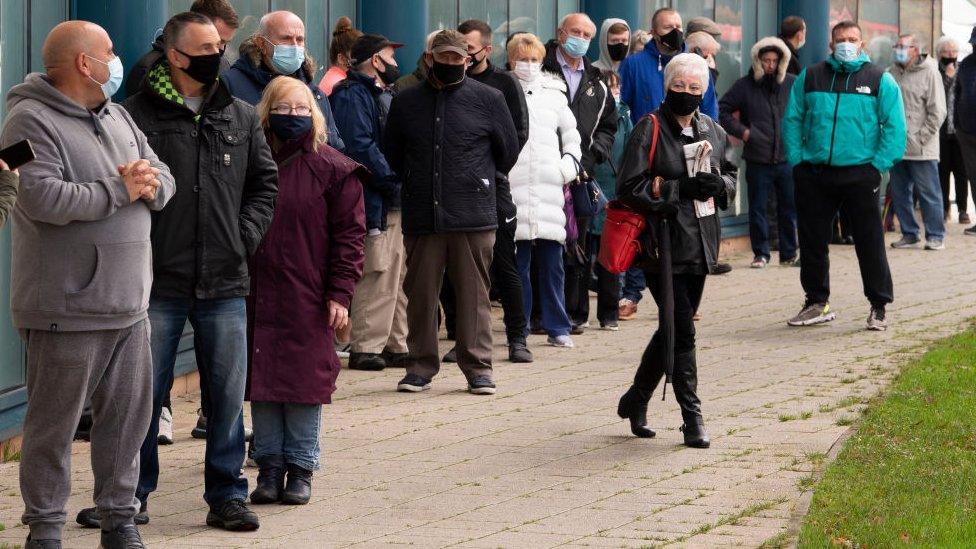Covid: A day in the life of a coronavirus test centre worker
- Published

Carmarthen showground has been repurposed as a coronavirus testing centre
In a cattle market repurposed for a very different mission, a 66-year-old man arrives early and shuts himself in a portable cabin.
Chris Jones dons his PPE, and prepares himself for the day ahead before heading to another work station to find out what his day holds in store.
Because this Carmarthenshire barn, with its five lanes for traffic, is being used as a regional coronavirus testing centre.
And Chris, a retired NHS mental health nurse and psychotherapist, is there in the showground at the front line - having answered the call for retired workers to return to help.
"It was quite surreal, a very odd set-up," he said.
"It looks like a lunar mission, with portable cabins outside the barn and work stations to take blood or swabs in.
"It's an old cattle market with five lanes for traffic to come through to be tested by swabs or blood samples for antibody tests.
"And it's very cold!"
Chris, who conducts tests three days a week on eight-hour shifts, said he saw the call for people whose registration had recently expired to join the pandemic effort - and signed up.
Due to his mental health expertise, he was asked whether he wanted to do occupational health - but Chris wanted to try something different.
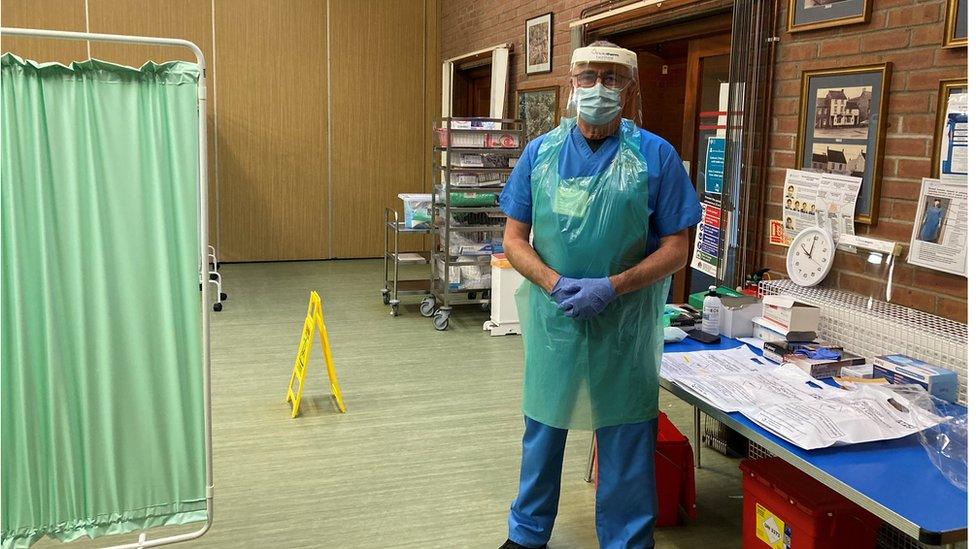
Retired mental health worker Chris Jones wanted to help the NHS battle the pandemic
And as it happens, his expertise is coming in handy anyway - dealing sensitively with people who are very nervous and anxious, or very unwell.
"It's a short, sharp meeting with people, who are often very apprehensive if they have an underlying illness or are terrified of Covid.
"There's an intensity in that workplace which brings the best out of most people, you react to people's state of mind and try and make people feel calm and collected."
Are workers and patients safe at Covid testing centres?
Yes, according to Chris.
"I feel completely safe. I don't think I've seen anyone not following the rules or doing what they're asked when they come here, it's probably better than the normal pre-pandemic NHS for that.
"I get there a bit early and get my kit on in my own cabin and then go to the control cabin where the tasks are allocated - though we do usually know what we're doing in advance.
"There's one lane reserved for people with symptoms which might be Covid, or cold or flu, and you might be allocated to that lane.
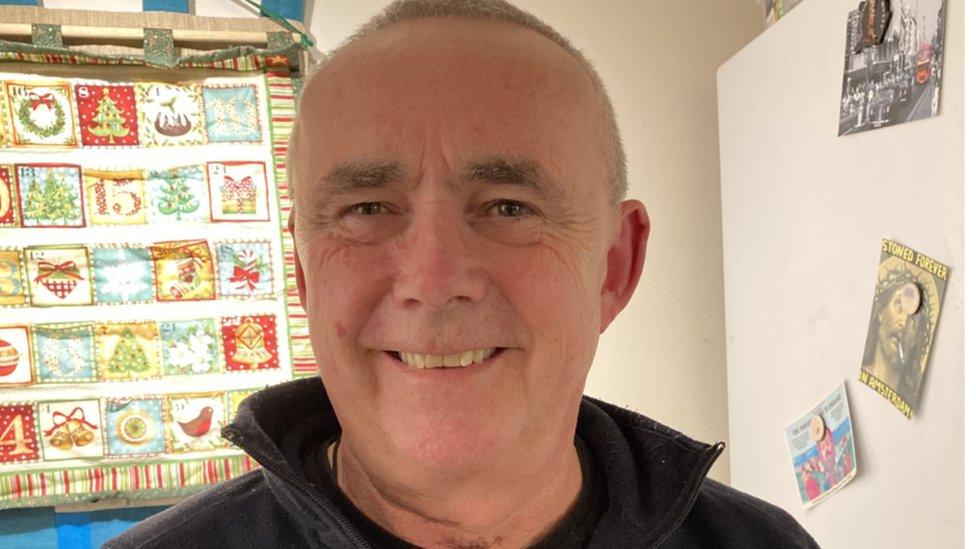
Chris says he has always felt safe despite the nature of his job
"Then there's another lane for people who are pre-operative or likely to have chemotherapy within days, and they need to check because their immune system will be very compromised by the chemo.
"So we make sure the lane for people with symptoms is as far as possible away from the pre-operative and pre-cancer treatment lane and that means we make sure the pre-op lane is upwind."
Chris also conducts some home testing for people who are self-isolating, going to their homes and he said he has discovered areas he never knew existed.
"One or two people are very agitated, not threatening but on edge, but not any more so than my previous working life.
"We have PPE and safety measures, and a pretty hot regime to make sure we're all covered."
Can test centre workers switch off at the end of the day?
"There's very good support and a lot of laughs," said Chris.
"They're a very good bunch of people who are very funny.
"We do see people who are clearly very ill with probable Covid or cancer treatment, sometimes that stays on my mind a bit.
"But we do what we do and do the best we can.
"We are mostly people who have seen a lot in their working lives, but when we see nurses or staff from wards who have had outbreaks, that's quite difficult.
"They're distressed or angry because they've worked very hard to keep their ward clean and safe and something's happened - you see how much they care."
Does coronavirus testing keep going over new year?
Chris is on the rota working over new year.
And afterwards, like every other shift, he will go home, spend time with his family, watch Gogglebox and let the day go.
"I'm really enjoying it," he added.
"The NHS has always been important to me and working in it has always been something I have enjoyed."
Related topics
- Published14 December 2020
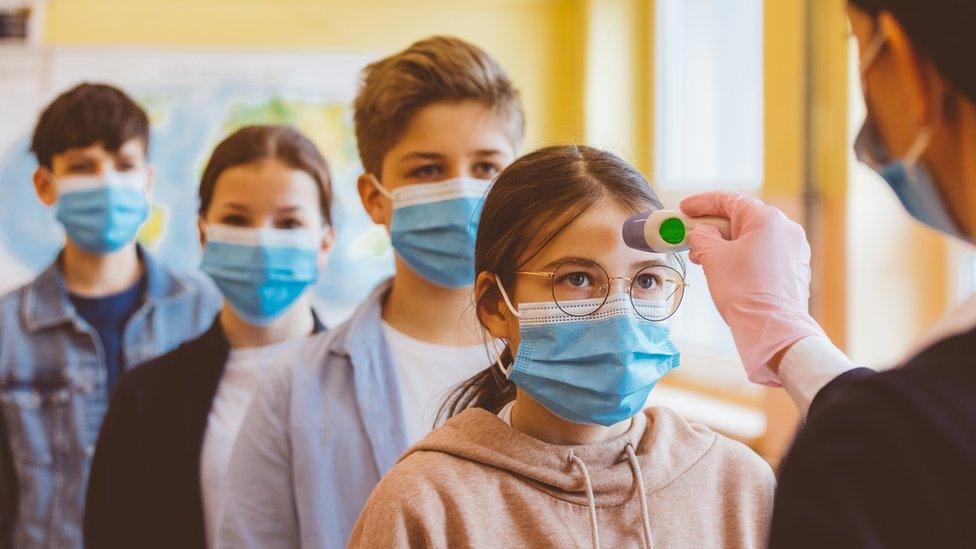
- Published3 May 2022
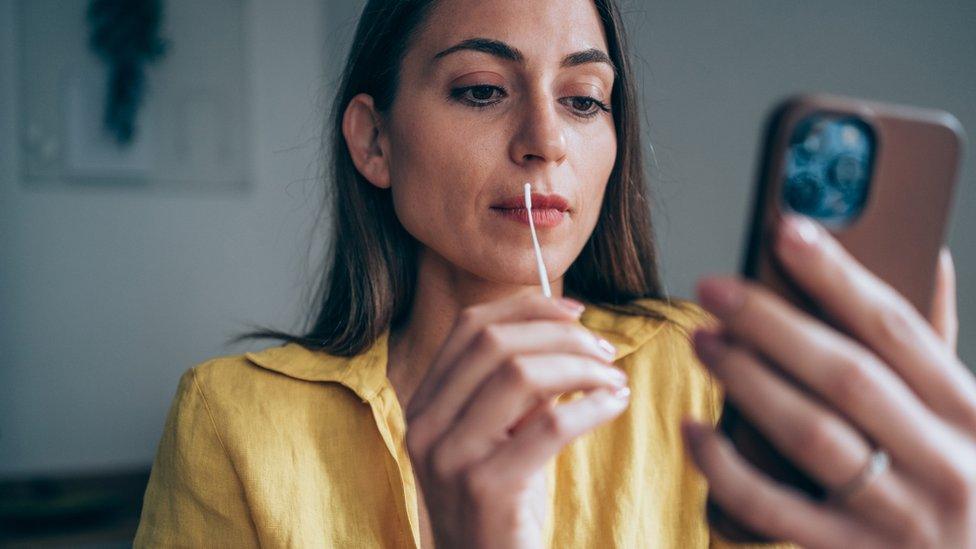
- Published12 December 2020
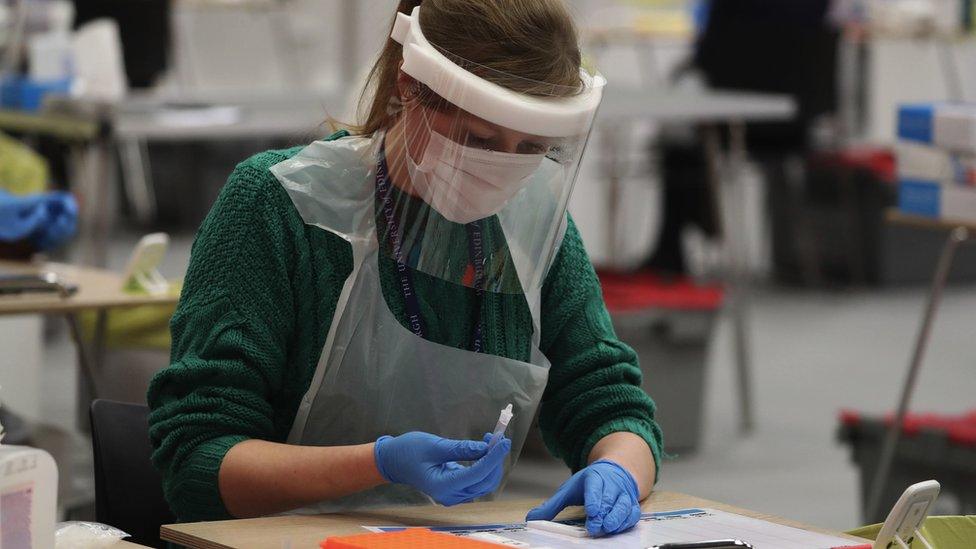
- Published13 December 2020
